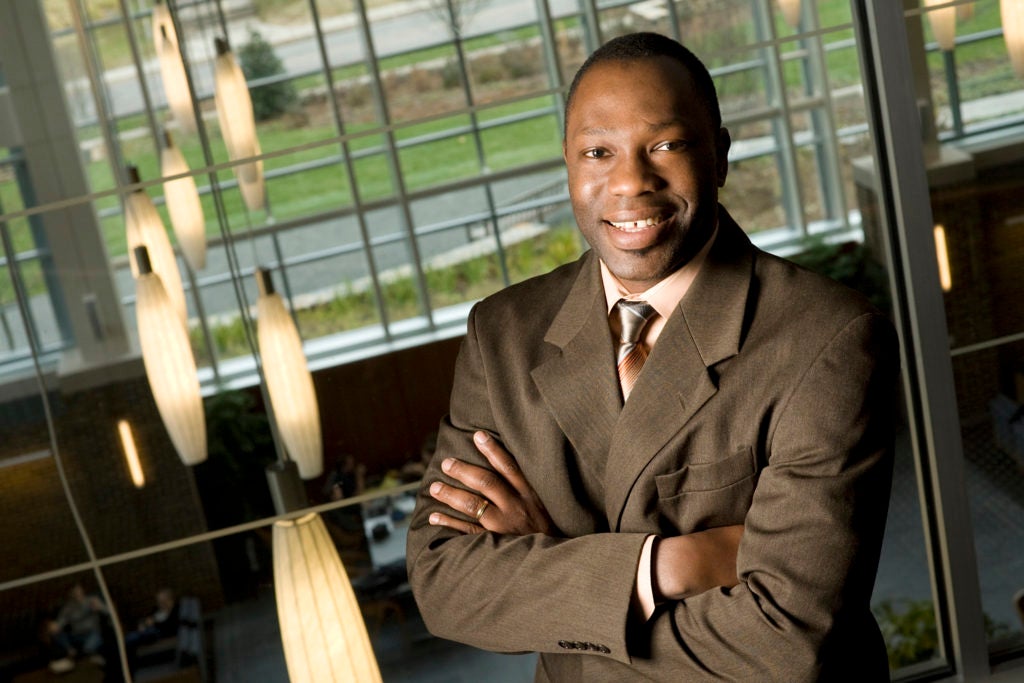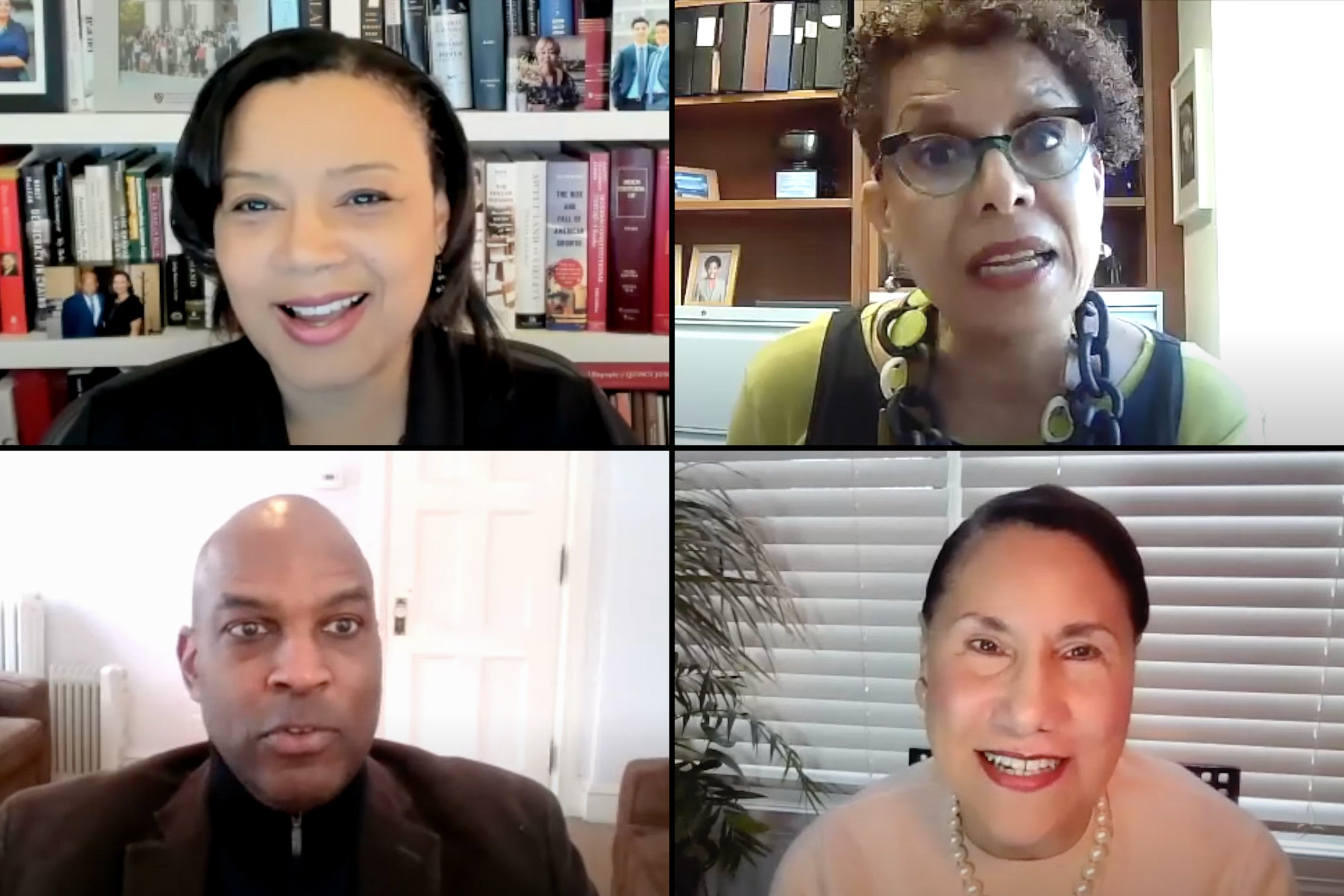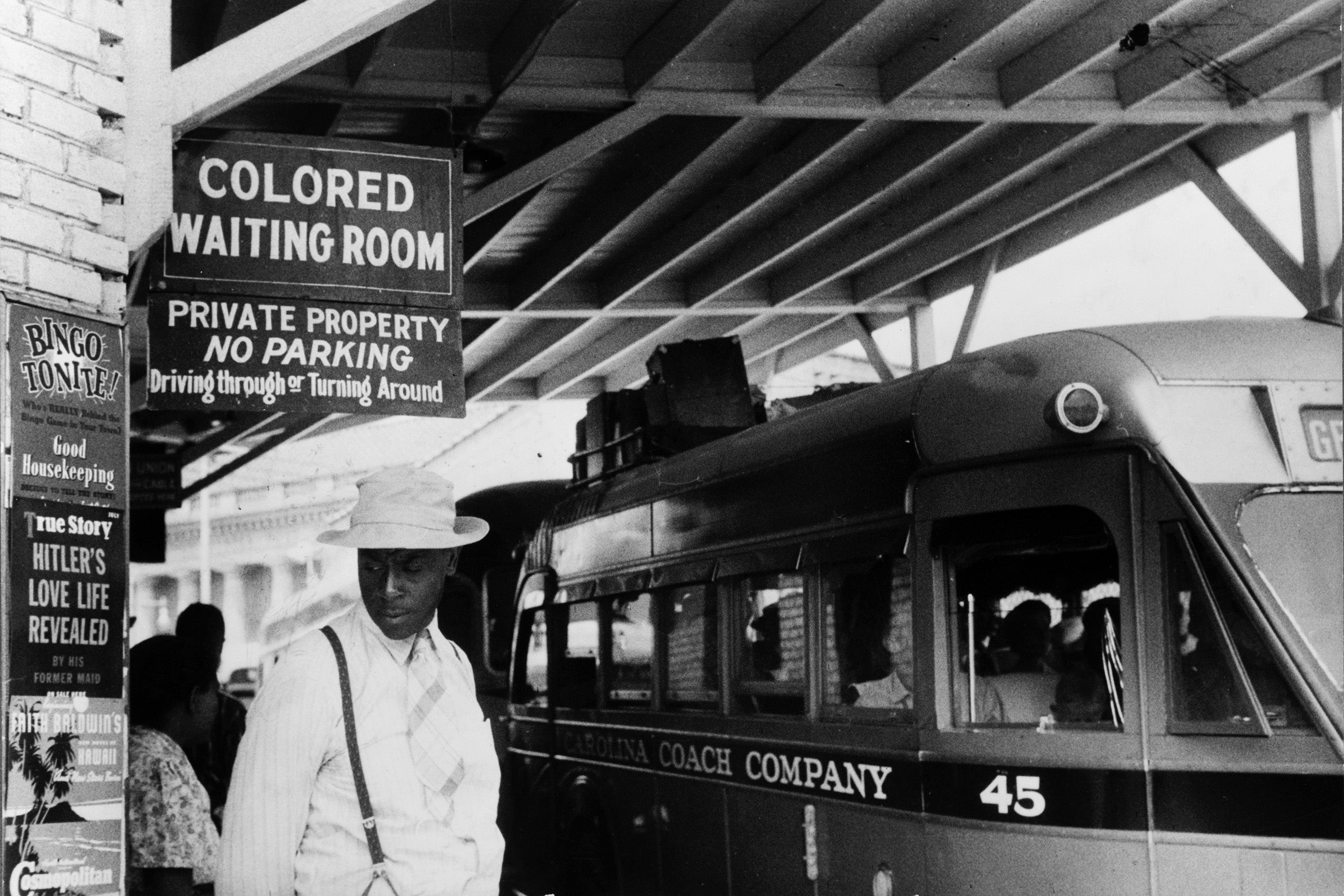People
Kenneth Mack
-
The 14th Amendment
April 15, 2024
Of all the amendments to the U.S. Constitution, the 14th is a big one. It’s shaped all of our lives, whether we realize it or…
-
A ‘Wary Faith’ in the Courts
March 18, 2024
During its heyday in the 1960s the civil rights movement caused deep divisions in American society. More recently it has been absorbed into a whiggish…
-
How to unwind and find your ‘happy place’
September 8, 2023
Members of the Harvard Law community discuss their favorite ways to loosen up and find their “happy place.”
-
How I discovered my passion in the law
September 5, 2023
Professors, lecturers, and staff members share how they found their way to the subjects they are most passionate about — and why they stay there.
-
Summer 2023 Harvard Law faculty reading recommendations
June 13, 2023
Looking for a summer book recommendation? Check out what these members of the Harvard Law School faculty plan to read — and listen to — this summer.
-
King: The Life of Martin Luther King by Jonathan Eig review – a story that speaks to our times
May 30, 2023
An article by Kenneth Mack: Who was the Rev Martin Luther King Jr? In America, the civil rights activist and Baptist minister is now embraced…
-
Historians were invited to the White House to advise President Biden on threats to democracy. But the group faced criticism for being all white, and…
-
Summer 2022 beach reads
June 26, 2022
Harvard Law faculty and staff share their reading lists for beachside, poolside, or inside with the AC.
-
Professor Guy-Uriel E. Charles, the Charles Ogletree, Jr. Professor of Law at Harvard, has been elected to the American Academy of Arts & Sciences.
-
Opinion: Did Ketanji Brown Jackson rule against Black workers? It’s not so simple.
February 23, 2022
An op-ed co-written by Kenneth W. Mack: As President Biden prepares to nominate the first Black woman to the Supreme Court, it’s worth pausing to consider the story of Constance Baker Motley, the first African American woman appointed to the federal bench. In 1975, Motley presided over a case in which a White woman, Diane Blank, had filed a class-action suit against the law firm Sullivan & Cromwell for sex discrimination.
-
Constance Baker Motley
February 15, 2022
Georgetown Law Professor Sheryll Cashin ’89 once asked her mentor, Thurgood Marshall, why he had passed over Constance Baker Motley to succeed him when he…
-
What Fannie Lou Hamer can teach today’s activists
November 22, 2021
Book review by Kenneth W. Mack, Lawrence D. Biele Professor of Law: The civil rights activist and leader Fannie Lou Hamer spoke truth to power with an authenticity that makes her words, her actions and even her singing seem to have immediate appeal to us. In 1962, Hamer was a Mississippi sharecropper with little formal schooling when she decided to attend a voting rights organizing meeting at a local church. Two years later, she was facing down President Lyndon Johnson and the national civil rights leadership at the Democratic National Convention. ... The historian Keisha N. Blain’s “Until I Am Free: Fannie Lou Hamer’s Enduring Message to America” employs “a blend of social commentary, biography, and intellectual history” to harness Hamer’s example for the present.
-
Reading the law
November 10, 2021
Harvard Law School’s upper-level reading groups give students the opportunity to dig into unique subjects connected directly — or not — to the law.
-
Civil Rights: Plessy v Ferguson
June 2, 2021
Today in our series on civil rights Supreme Court cases, we examine the anticanon decision of Plessy v Ferguson. Steven Luxenberg, Kenneth Mack, Keith Plessy and Phoebe Ferguson walk us through the story of Homer Plessy, the Separate Car Act of 1890, an infamous opinion and a famous dissent.
-
Plessy v. Ferguson at 125
May 19, 2021
One hundred and twenty five years after the Supreme Court’s decision in Plessy v. Ferguson, Harvard Law Professor Kenneth Mack ’91 says there are still lessons to be gleaned from the case.
-
A book review by Kenneth Mack: Akhil Reed Amar’s “The Words That Made Us: America’s Constitutional Conversation, 1760-1840” is the rarest of things — a constitutional romance. Amar, an eminent professor of law and political science at Yale, has great affection for his subject as a text that is worthy of loving engagement by scholars and the public at large. His 700-page narrative covers the “main constitutional episodes” that Americans faced as they revolted against Britain, created a Constitution and Bill of Rights, and built a new nation. Amar argues that the rebellious British subjects sparked a decades-long “constitutional conversation,” which eventually drew in men such as John Adams, George Washington, Alexander Hamilton, Thomas Jefferson, James Madison and Chief Justice John Marshall. His book appears at a time when the Constitution has been criticized for its suppression of the revolution’s popular impulses, its undemocratic features such as the electoral college, its embeddedness in slavery and its deliberate exclusion of so many from its iconic invocation of “We the People.” Amar’s story is more celebratory, but the strength of his argument depends on whether his central metaphor of a conversation accurately captures what is at stake in this book.
-
The Diane Rehm Book Club: “Caste: The Origins of Our Discontents,” by Isabel Wilkerson
April 22, 2021
For the April meeting of The Diane Rehm Book Club, Diane and guests discuss "Caste: The Origins of Our Discontents," by Isabel Wilkerson. She is joined by Kenneth Mack, professor of law and affiliate professor of history at Harvard University and author of "Representing the Race: The Creation of the Civil Rights Lawyer"; Suraj Yengde, author of the "Caste Matters" and co-editor of the anthology "The Radical in Ambedkar" and a senior fellow at the Harvard Kennedy School; and Dwight Garner, book critic for The New York Times.
-
An op-ed by Norman Eisen and Kenneth W. Mack: Some of our largest businesses are having a political awakening. From Bank of America to Apple to Coca-Cola to Delta Air Lines, corporate boardrooms are speaking out against new laws in Georgia and elsewhere that will disproportionately make it harder for Black voters to participate in elections. As companies decide how to respond to such laws, they would do well to look for inspiration from the civil rights movement of the 20th century. The evidence suggests that weighing in on the side of justice was not only the right thing to do — in many cases, it was also the profitable thing, serving a double bottom line. Recent work by the economist and historian Gavin Wright has documented the substantial, albeit unequal, gains that accrued to Southerners and the businesses that served them, due to the fall of the Jim Crow system. The numbers are striking: “[S]outhern retail business lagged the nation throughout the years of sit-ins and mass boycotts.” But after the businesses desegregated, Wright found, Dallas department stores saw sales increase by over 80 percent just seven years later (from desegregation in 1961 to 1968), while during the same time span a decade before, sales had been flat or slow in growth.









